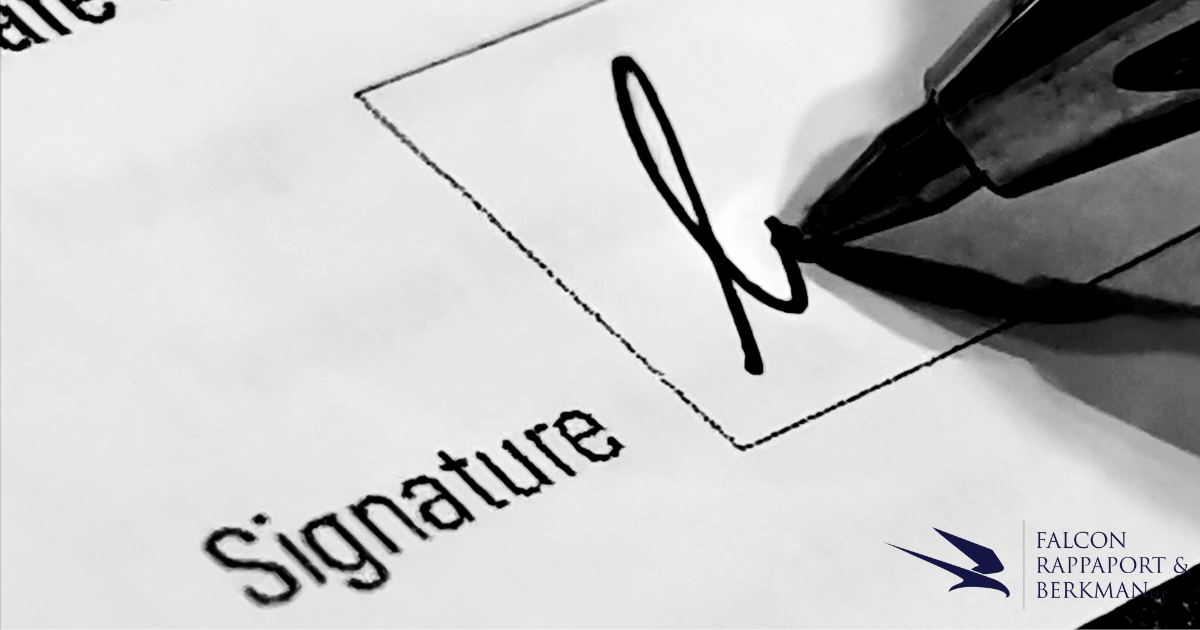Best Practices Alert: Counsel Must Obtain and Keep “Wet” Signature if Utilizing Electronic Signature Software in Court Filings
By: Michael L. Moskowitz, Esq. and Melissa A. Guseynov, Esq.
In a recent unpublished decision dated February 28, 2023, Chief Bankruptcy Judge Frederick E. Clement of the Eastern District of California Bankruptcy Court held that affidavits signed utilizing electronic signature software (such as DocuSign) are not admissible in Court if the user who uploaded the affidavits does not have “wet” signatures on hand. See Carbardo v. Patacsil (In re Patacsil), Case No. 20-02167 (Bankr. E.D. Cal. Feb. 28, 2023).
In Patascsil, the plaintiff in an adversary proceeding before Judge Clement filed eight affidavits, each signed electronically using DocuSign. The defendants objected to the use of the affidavits as written direct testimony arguing that utilizing DocuSign rendered the affidavits unsigned and, therefore, inadmissible.
In concurring with the defendants, Judge Clement stated that both Federal statute and the Local Rules render electronic signatures insufficient and require a “manually-created, wet signature,” as “DocuSign type signatures are capable of manipulation or forgery.” Notably, this rule has two exceptions, of which litigators should be aware. The Court explained it will accept a computer-generated signature if “an original wet signature is in the possession of the registered user of the electronic filing system at the time the document is filed.” In addition, proof of the existence of the execution of a document can be established by facsimile or by a document created in PDF format.
While the Patacsil decision does not hold precedential status, it is important for practitioners who routinely litigate cases and utilize affidavits as evidence to be cognizant of opinions such as the one above. Although bankruptcy courts in the Southern and Eastern Districts of New York and the New Jersey vicinages allow /s/ electronic signatures, each requires the filer to retain a hard copy of the original executed document for a period of time and must be able to produce it upon request of the court. See D.N.J. LBR 5005-1 (requiring user to retain document with original signature for 7 years after the closing of a case or proceeding); E.D.N.Y. LBR 9011-1 (requiring user to maintain original executed document for two years after entry of a final order closing the case or proceeding); Procedures for Filing, Signing and Verification of Documents by Electronic Means, SDNY Bankruptcy Court (requiring user to maintain hard copy of originally executed document for the later of two years or the entry of a final order terminating the case or proceeding).
Conclusion
Wherever one may practice, it is highly advisable to review the relevant local rules and request clients who use technology such as DocuSign to also provide a “wet” signature to eliminate the risk of a Court characterizing an affidavit as unsigned (and thus without evidentiary value).
Falcon Rappaport & Berkman invites you to explore how our professionals can meet your needs across our fully integrated areas of concentration. FRB’s interdisciplinary approach allows the firm to achieve unparalleled outcomes for our clients that could only be secured through proficiency in complementary areas of law. To contact any one of FRB’s professionals, please call (212) 203-3255 or submit the contact form below.
DISCLAIMER: This summary is not legal advice and does not create any attorney-client relationship. This summary does not provide a definitive legal opinion for any factual situation. Before the firm can provide legal advice or opinion to any person or entity, the specific facts at issue must be reviewed by the firm. Before an attorney-client relationship is formed, the firm must have a signed engagement letter with a client setting forth the Firm’s scope and terms of representation. The information contained herein is based upon the law at the time of publication.

